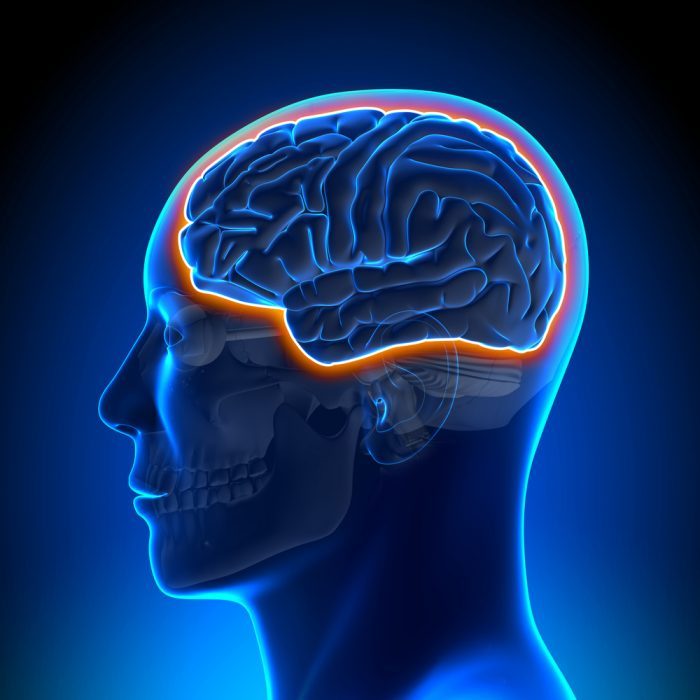CBD and nanocapsules could be a key combo to treating brain-based illness.
A new study, published in Molecular Pharamceutics, investigated how CBD is able to get medicine across the blood brain barrier (BBB). The BBB is notoriously tough to get medications through. In fact, it denies access for most molecules. It is critical, however, that we figure out how to get medicine to specific areas of the brain in order to advance treatment for mental health disorders.
According to the World Health Organization, one in four people will be affected by a mental or neurological disorder. The prevalence of mental health illnesses has been on the rise in the 21st century. It is expected to remain as such. Some of this can be put down to the increase in life span and resulting opportunity to age into dementia and other neurological disorders.
Unfortunately, treatment strategies for diseases of the central nervous system (CNS) have not caught up. The big obstacle in treating these disorders is passing through the blood brain barrier (BBB).

CBD and Nanotechnology Breach The Blood Brain Barrier
The “no access” property of the BBB evolved to protect our CNS from pathogens in the blood. These can circulate in the bloodstream, but this barrier stops the brain from becoming infected. The results of that are devastating, such as Lyme Disease or meningitis. The problem is that the militant BBB also locks out medicine that we want to get through.
How to Cross the Blood Brain Barrier?
A “Micro-cargo,” covered in lipid molecules, could be a logical strategy to get across this fat-filled membrane. ‘Like dissolves like’ and lipids can get across. Several clinical trials have investigated exactly this.
These “micro cargo” exist. They are particles called nanocarriers and can be packaged with any medicine of choice. The package dissolves across the lipid membrane of the BBB, and then brings its precious medicine cargo with it. However, this is still not the most efficient way of targeting a specific problem within the brain. Researchers are now looking at other ways to target brain disease. Doctors call one of these “Brain active targeting.”
What is Brain Active Targeting?
Brain active targeting is a branch of medical research investigating how we can use the receptors in the BBB to get medicine across and into the brain. Nanoparticles use ligands to ‘unlock the door’ and get into the brain. A very important feature for nanoparticles is that they do not excite the immune system in any way.
Nanocapsules are the Perfect Ninja
CBD is the perfect candidate for further exploration in this field. CBD is capable of binding many receptors found on the BBB: CB1, TRPV-1 , GPR55 and dopamine D2.
One group of researchers took medicine-filled nanocarriers, called nanocapsules (LNCs), and decorated these with CBD. This was to test the hypothesis that this setup would get the medicine across the BBB without waking up the immune system since CBD is accepted across its checkpoints.
They next tested this in vivo in a mouse model, intravenously injecting the LNCs and CBD/LNC combos into the brain. Fluorescent dye made for easy tracking. The in vivo results confirmed that smaller sized LNCs, coupled with CBD, were most successful in getting across the barrier.
How Are CBD Nanocapsules Able to Get Medicine Across?
They hypothesized that the mechanism of action for CBD LNCs is likely via binding to receptors on the BBB. The proof of this will be the subject of future studies.
Healthy mice were the subject of this study. This is a potential limitation as we don’t know if CBD LNCs will operate the same on a leaky BBB. Certain diseases compromise the BBB.
Nevertheless, this study was the first of its kind to show ‘proof of principle’ that CBD LNCs could potentially deliver medicine directly into the brain.
A Victory – But More Research Necessary
Scientists will still need more research to confirm the role of CBD in helping medications through the Blood Brain Barrier. Further, the new research will need to look at nanocapsules breaching the blood brain barrier both in vitro (out of a living subject) and invivo (in a living subject). These will have to be human tests, as well. Hopefully, these results will reinforce those of the original mouse study; and they will underscore the value of future in vivo tests on human subjects, which will inevitably lead to these CBD nanocapsules helping treat brain-based illnesses in the future.





